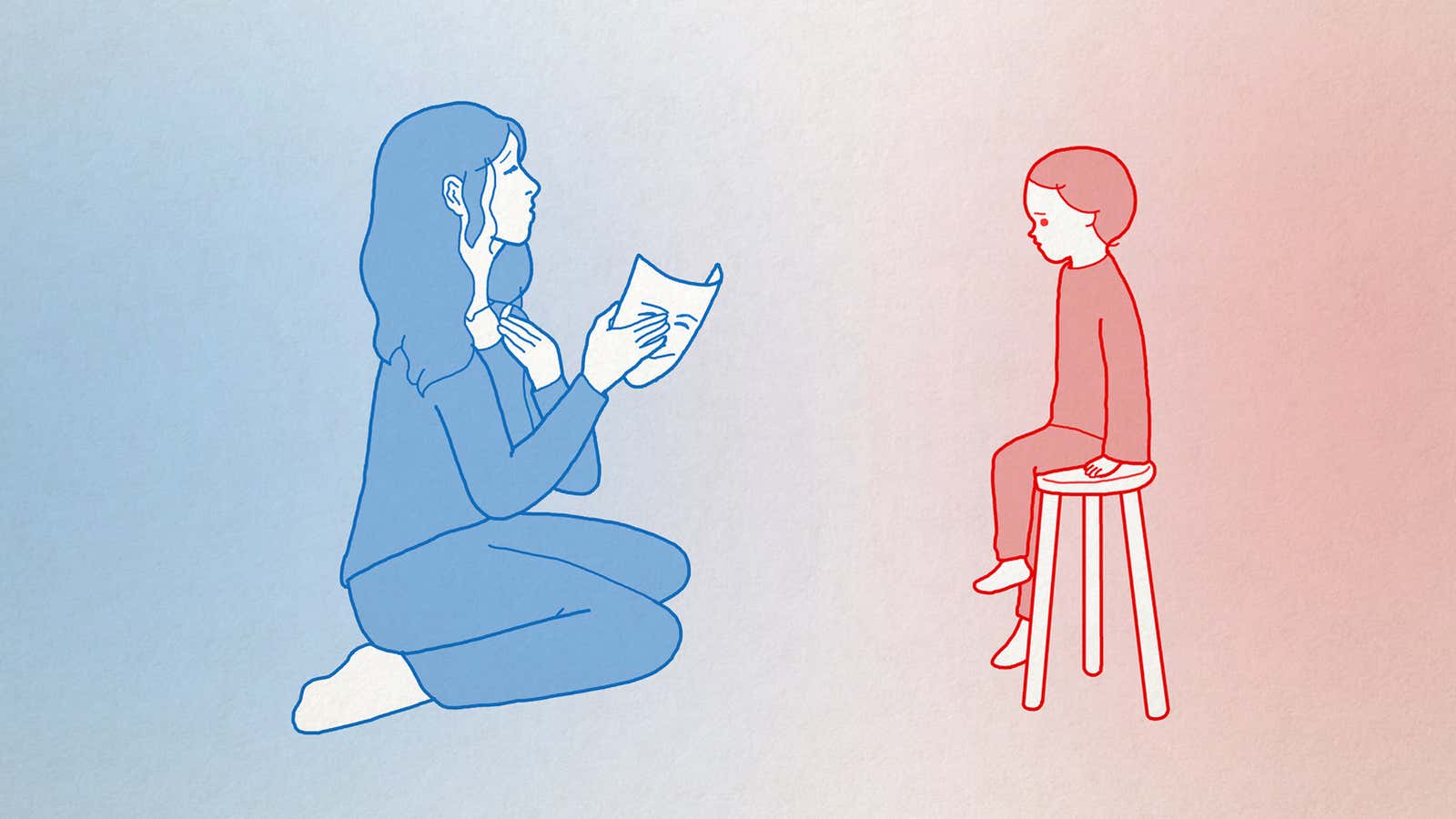One in four people in the United States is living with a mental illness. That means that chances are high that the person sitting next to you on the subway suffers from one. Despite what you may have seen in movies and on TV, mental illness doesn’t have a recognizable face.
I’m a 35-year-old living with PTSD, panic disorder, ADHD, and depression. I am also an attentive, loving single parent to my two children, ages seven and four. Unfortunately, because of the way mental illnesses are still stigmatized in our society, the minute I talk about them I am judged. Some people even question my ability to be a good parent. These concerns aren’t only insulting, they’re dead wrong.
Yes, there are days when my heart races uncontrollably. There are moments when I feel as if my chest might explode. During these moments, when I am at my most anxious, I tell my children, “Mommy is feeling nervous right now.” I am still able to attend to their needs. I am still with them in the moment.
However, I am also honest about what I’m experiencing. This is important. As parents living with mental illness, we need to teach our children what we are going through in a way that makes sense to them.
In the past, the prevailing wisdom was children needed to be sheltered from talk of mental illness, as if it is something scary. This theory has since been thoroughly debunked. In fact, studies have shown that children benefit from talking about mental illness openly with their parents.
Mental illness is not scary, and by treating it as such we do both our children and society generally a great disservice. Knowing what we do about the prevalence of mental illnesses, it is vital that we educate our children about what we experience. This way, when they grow into adults, they will be better equipped to deal with peers, coworkers, and loved ones—not to mention themselves.
The key to eradicating stigma associated with mental illness is to speak about it without shame. You’re feeling depressed? Tell your children. I have said (on occasion) to my children, “Mommy is feeling sad today.” Although I am experiencing sadness, I can still be a great mother; the two are not mutually exclusive. And it helps my children to understand my changes in body language or tone.
One thing that I also focus on with my little ones is the fact that my moods do not have to do with them. I will say, “Mommy is feeling sad today, but she still loves you very much. You didn’t do anything to cause me to feel sad.” Children internalize the moods of their parents without realizing it. It is our job as adults and caretakers to remind our kids that they are loved, and they are not responsible for our moods.
If you a parent living with mental illness, I encourage you to talk to your child about what you are experiencing, using child-appropriate language of course. The more we can speak openly about mental illness to our young ones, the better we will all be.
